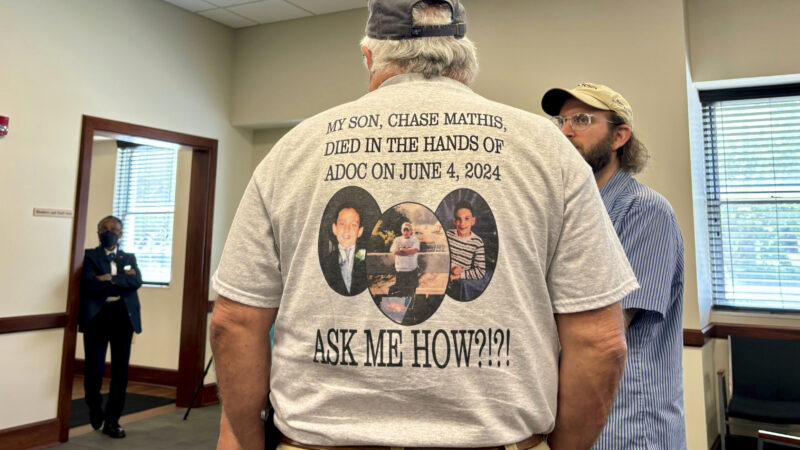Wastewater failures for Lowndes County’s Black residents at center of DOJ investigation
A sign welcomes visitors to Lowndes County in White Hall, Alabama. The U.S. Department of Justice opened an environmental justice investigation in November 2021 into the Lowndes County Health Department, along with the Alabama Department of Public Health, for their wastewater disposal and infectious disease and outbreaks programs.
The U.S. Department of Justice is opening up an investigation into the Alabama Department of Public Health and Lowndes County Health Department over concerns that the wastewater systems in rural Alabama discriminate against poor Black residents.
The investigation, opened Tuesday, is looking into the health departments’ wastewater disposal and infectious disease and outbreaks programs.
In a press release, the department said it is examining whether ADPH and LCHD are violating Civil Rights Law and whether the departments’ policies have reduced Lowndes County’s Black residents’ access to sufficient sewage and water systems and increased their exposure to harmful infections associated with poor wastewater management, such as hookworm — an intestinal parasite widely eliminated elsewhere in the U.S.
Lowndes County, where the population is largely poor and Black, has had complaints of poor infrastructure leading to raw sewage pooling in residents’ yards or backing up into their homes.
“Sanitation is a basic human need, and no one in the United States should be exposed to risk of illness and other serious harm because of inadequate access to safe and effective sewage management,” Kristen Clarke, assistant attorney general for the department’s Civil Rights Division, said in the press release. “State and local health officials are obligated, under federal civil rights laws, to protect the health and safety of all their residents.”
Title VI of the Civil Rights Act of 1964 blocks recipients of federal funding from discriminating based on race, color or national origin. The probe into Lowndes County’s sanitation systems is the department’s first Title VI environmental justice investigation for one of its funding recipients. No conclusions have yet been drawn.
This story was produced by the Gulf States Newsroom, a collaboration between Mississippi Public Broadcasting, WBHM in Birmingham, Alabama, WWNO in New Orleans and NPR.
Alabama prison chief responds to families’ criticism
The department said that a number of changes have been made since Corrections Commissioner John Q. Hamm was appointed in 2022. The department said hiring has increased, and there are ongoing efforts to curb the flow of contraband and improve communications with families.
40 years after ‘Purple Rain,’ Prince’s band remembers how the movie came together
Before social media, the film Purple Rain gave audiences a peak into Prince’s musical life. Band members say the true genesis of the title song was much less combative than the version presented in the film.
Park Fire in California could continue growing exponentially, Cal Fire officer says
Cal Fire has confirmed that over a hundred structures have been damaged in the Park Fire, which grew overnight near Chico, Calif. Difficult firefighting conditions are forecast through Friday night.
Checking in with Black voters in Georgia about the election, now that Biden is out
Some voters who could be key to deciding who wins Georgia. What do they think about Vice President Harris becoming the frontrunner in the race to be the Democratic nominee?
Tahiti’s waves are a matter of ‘life and death’ for surfing Olympics
Tahiti's Teahupo'o wave has a slew of riders for the Paris 2024 Olympics. NPR finds out why it's called one of the most dangerous waves.
Researchers are revising botanical names to address troubling connotations
Since the mid-1700s, researchers have classified life with scientific names. But some of them have problematic histories and connotations. The botanical community is trying to tackle this issue.




